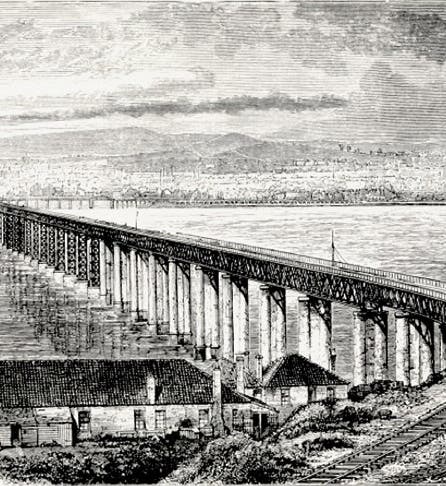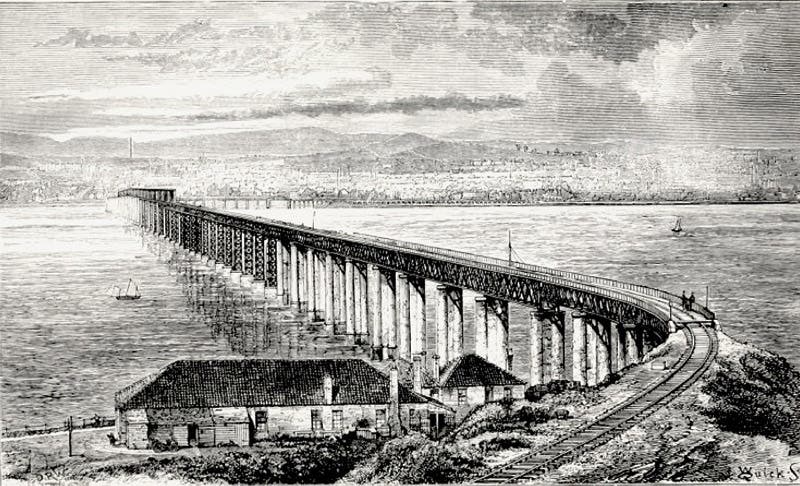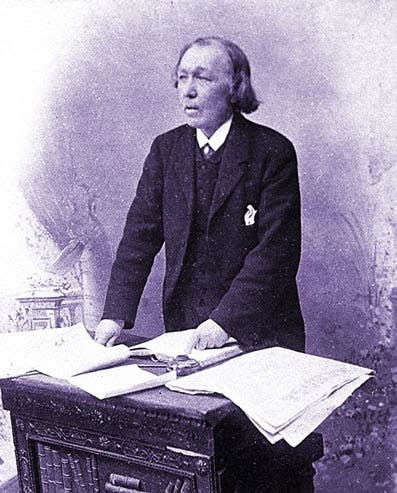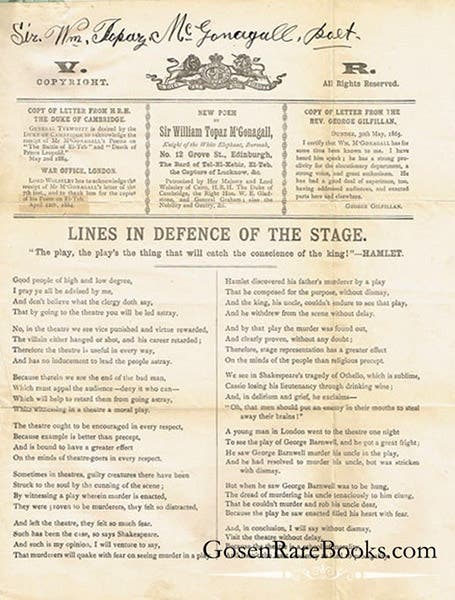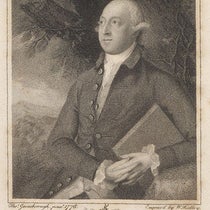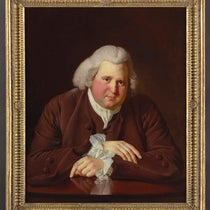Scientist of the Day - William Topaz McGonagall
William Topaz McGonagall, a Scottish poet, died Sep. 29, 1902, at the age of 77. McGonagall is commonly referred to as the worst poet who ever wrote in the English language, which seems to be an extreme claim, as there must be a thousand worthy (or unworthy) candidates for such an honor. That said, the poetic effort we will be discussing does make a pretty good case for McGonagall. Here is the background.
In one of our very first posts in this series (Oct. 30, 2014), we told the story of the Tay Bridge. Crossing the Firth of Tay at Dundee, it was designed by Thomas Bouch and opened for rail traffic on June 1, 1878 (first image). Unfortunately for everyone, especially for the 75 souls on a train on the bridge at the time, the central section of the bridge collapsed on Dec. 28, 1879, and all lives on the train were lost. The career of Bouch was ruined when it was revealed at the inquiry that the design was faulty and the beams and girders improperly made, and he died in shame just a year later. You can see a map, and some other photos of the bridge, before and after the collapse, at our earlier post.
McGonagall was moved to capture the tragedy in verse in 1880; his poem is called “The Tay Bridge Disaster.” I provide you with an abridged version below, offering only the first and last stanzas, as a merciful gesture. I think that the word “Disaster” in the title refers to the collapse of the bridge, but it is hard to say.
The Tay Bridge Disaster
Beautiful railway bridge of the silv'ry Tay
Alas! I am very sorry to say
That ninety lives have been taken away
On the last Sabbath day of 1879
Which shall be remembered for a very long time.
........
It must have been an awful sight,
To witness in the dusky moonlight,
While the Storm Fiend did laugh, and angry did bray,
Along the Railway Bridge of the Silv’ry Tay,
Oh! ill-fated Bridge of the Silv’ry Tay,
I must now conclude my lay
By telling the world fearlessly without the least dismay,
That your central girders would not have given way,
At least many sensible men do say,
Had they been supported on each side with buttresses,
At least many sensible men confesses,
For the stronger we our houses do build,
The less chance we have of being killed..
While “The Tay Bridge Disaster” is far and away McGonagall’s most famous poetic endeavor today, it was different in his own time, when he was best known for the poem he wrote about the bridge before it collapsed. It was called “The Railway Bridge of the Silvery Tay” (a title that he later adapted for the first line of the “Disaster” poem), and it contained the memorable quatrain:
Beautiful Railway Bridge of the Silvery Tay!
That has caused the Emperor of Brazil to leave
His home far away, incognito in his dress,
And view thee ere he passed along en route to Inverness.
McGonagall earned his living, such as it was, by giving public readings of his poetry, at which he also sold printed broadsides containing one or more of his poems. He published only one book of poems in his life, Poetic Gems (1890-91), but if any copies have been scanned and put online, I could not find them. I did come across one of his original broadsides, being offered for sale by a rare book dealer, with the text of a poem called “Lines in Defence of the Stage” (third image) I do not know how long it has been on the market, but I don’t expect it to find a buyer any time soon.
If you would like to read the rest of the “Tay Disaster” poem, or sample one of 200 others just as gripping, McGonagall has his own commemorative website, which is more than most of the rest of us can claim. You can find the complete “Tay Bridge Disaster” here, and “The Railway Bridge of the Silvery Tay” here. You can also find there his “Autobiography” which, as he says in helpful clarification, was written by himself.
Having rethought the matter of his “worst-poet” status, I now conclude that while one would be hard-pressed to argue that McGonagall was the worst British poet ever, he does seem to be the best-known of the worst poets ever. That is an even more difficult feat than becoming famous for writing very good poetry, as many very good poets know all too well.
William B. Ashworth, Jr., Consultant for the History of Science, Linda Hall Library and Associate Professor emeritus, Department of History, University of Missouri-Kansas City. Comments or corrections are welcome; please direct to ashworthw@umkc.edu.

